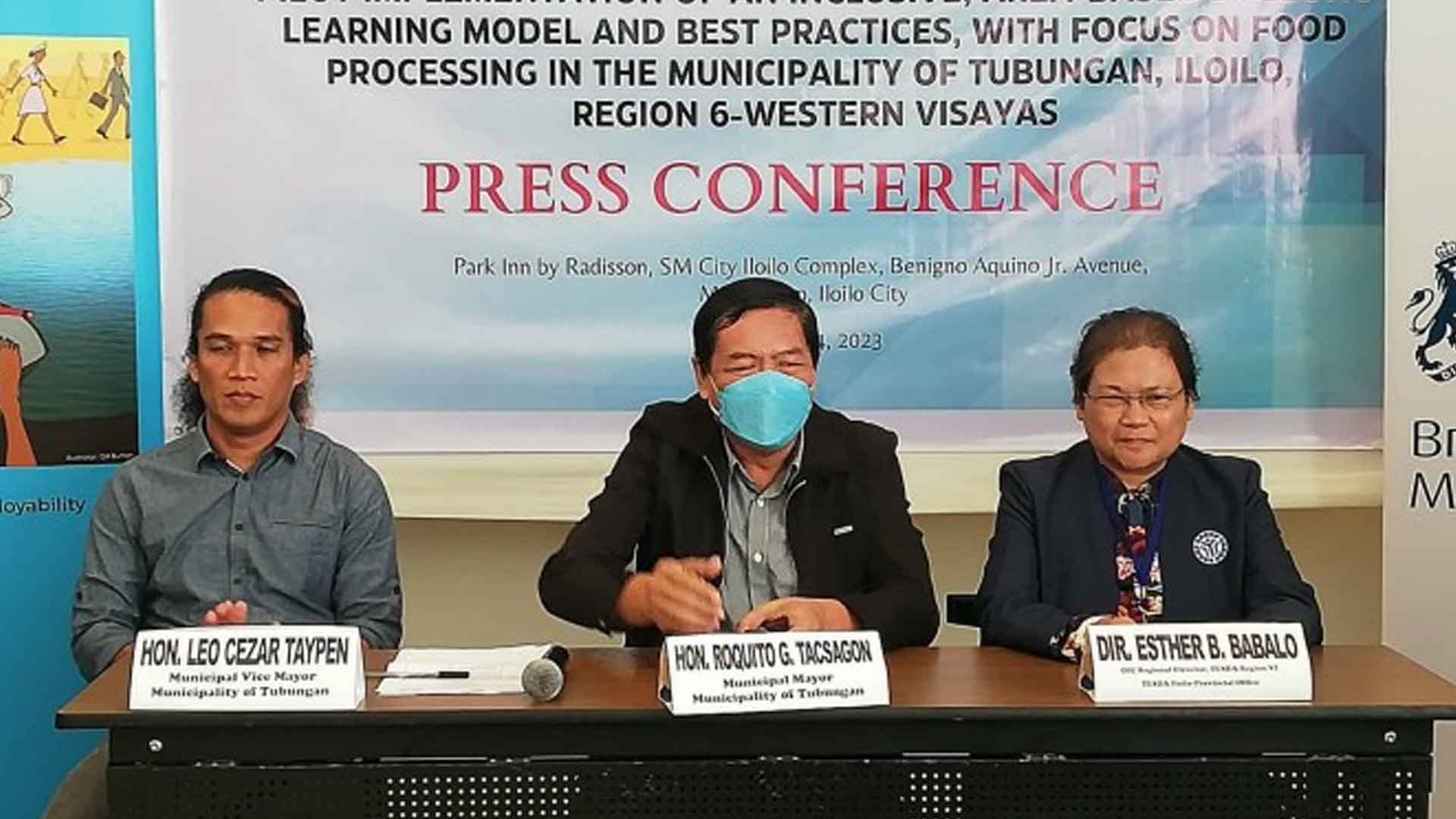The fourth-class municipality of Tubungan in Iloilo province has been chosen as the pilot site for the Skills for Prosperity (SFP) project of the International Labor Organization (ILO) funded by the British government.
The four-month technical cooperation project focusing on food processing started last April 25 this year and will end on Aug. 31 and is aimed at enhancing the skills and employability of initially 25 selected indigenous peoples (IPs), particularly learners and passers of the Alternative Learning System (ALS).
In partnership with the Technical Education and Skills Development Authority (TESDA), the beneficiaries will be trained on food processing by dehydration leading to Food Processing National Competency (NC) II certification to enhance their employability as well as augment their income.
“These ALS 25 beneficiaries will be trained and hopefully they could acquire the NC II through TESDA. They will become our community-based trainers and they will train the people in their respective communities. But we will not stop on that, we are partnering with other government agencies to achieve more training,” said Dr. Joyce Wendam in a press conference in a hotel in this city on Tuesday.
Wendam is the project manager under the project management team of the local government unit of Tubungan.
SFP Philippines senior project officer Katherine Brimon said they would like to illustrate “how changes in the system for instance in the delivery of ALS and linkages TVET (Technical and Vocational Education Training) System can influence the employability of IP communities” in Tubungan, which has a potential for economic growth but is being challenged by poverty and lack of economic activity.
“Among vulnerable and marginalized groups in the country, individuals coming from indigenous peoples are considered to be vulnerable in the labor market. The pilot is actually demonstrating that when we work together towards a certain vision, in this case, employability, you are trying to remove them from that situation of vulnerability,” she said in the same press conference.
Tubungan has 6,000 IP residents living in 10 barangays situated in mountainous areas.
A consultation was conducted together with the Department of Education to choose recipients based on the tool that was provided by the ILO.
TESDA OIC -Regional in Western Visayas Esther Babalo said the training on food processing that will be conducted in August will also include competencies on packaging and a bit on thermal impact.
“This is actually a competency of the new training regulations in food processing,” she said, adding that recipients will receive a daily allowance of PHP160 and training materials.
Instructors from the Leon Ganzon Polytechnic College, a TESDA-administered school in the town of Balasan, have been tapped to handle the training that will run for over 10 days in Tubungan.
Aside from skills training, other components of the project include the institutionalization of a multi-stakeholder coordination mechanism, access to government services, the presence of program champions in the locality, and opportunities for co-financing.
“It’s a big challenge because we have to show that this project will be a model to be replicated by all other regions in the Philippines. With the cooperation and collaboration of the partner agencies, and the private sector we hope this project will succeed,” Wendam said.
“We are hoping that this project will develop the living status of our constituents. This noble project will help a lot so that the skills of our constituents will be fully developed,” said Tubungan Mayor Roquito Tacsagon. (PNA)




















